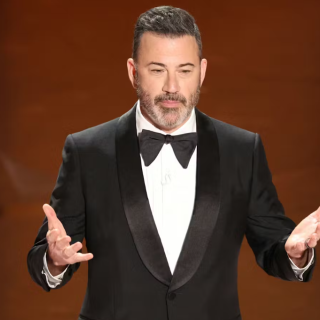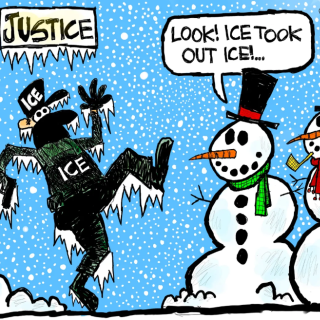There is endless chatter about the “decline of,” “loss of interest in,” or “end of” the humanities among and about college students and the never defined “general public” for decades, perhaps ever since the vague term “the humanities” came into general discourse. Notions vary and contradict each other. They range from those who confuse the arts and humanities with “the past,” “elites,” “bias of ‘Western Civilization’” regarding men, Caucasians, Christians, older people, and of course “the educated.”
Special censure contradictorily falls on academic humanists ourselves. Professors and our institutions are at once viewed as “conservative” enemies of “the people” or the “masses,” the upholders of traditions such as “the classics” and “great books” at all costs. At the same time, with no evidence—only cultural bias and guilt by association—many associate the humanities alternatively with “liberals,” “the left,” “radicals,” “socialists,” Marxists,” and so forth.
A further complication is the linguistic association of humanities with humanism—from do-gooders of a wide variety of stripes, or benevolence. Confusingly, this misconception is alternatively good or bad, depending on the eyes of the beholder.
At the same, the significant overlaps and shared interests among the arts and humanities, the social sciences, and the natural sciences are rarely recognized, let alone appreciated/noted. Few people under the age of 60 within universities, let alone outside them, are familiar with Thomas Kuhn’s once essential book The Structure of Scientific Revolutions. Kuhn himself was both a physicist and a historian and philosopher of science. (See also my Undisciplining Knowledge: Interdisciplinarity in the Twentieth Century, 2015)
It is increasingly clear that academic humanities professors and our universities rank high among our own cultural and institutional failings. Overall, we retreat and whine—more than other disciplinary clusters--rather than stepping out of our cloisters, working across lines together, and demonstrating the undeniable relevance and value to learning, society, culture, the polity, and yes, the economy too, of perspectives and knowledge of the humanities in theory and in practice.
The humanities are not irrelevant. They “pay off” in many definitions when viewed closely and accurately. I demonstrate this is my essays listed in the References below.
In recent months, I am reminded of a usually missing piece of the larger puzzle of the “decline” or “plight” of the humanities. At a time that genuine, inclusive, critical, broadly based higher education is threatened most directly by state legislatures in Republican-dominated states, my home state of Ohio brazenly seeks to cancel free speech and academic freedom among other critical foundations of public education at all levels. In this, they ignorantly imitate other states.
An opinion essay in the Columbus Dispatch on April 3, 2023, speaks to larger problems and missing links: the failure in Ohio at least of “public” state humanities councils, committee, etc. This is “‘The humanities are our moral compass.’ Is there value in English, history degrees?”
Credited to the Executive Director of the Ohio Humanities Council, it led me to realize that in 19 years of residence and association with The Ohio State University, I had never heard mention of this Council. Having worked with the Texas Committee for the Humanities in the 1980s and the Canadian equivalents as a graduate student in Toronto in the 1970s, this recognition startled me.
Checking quickly, I discovered that the piece was written by Rebecca Brown Asmo, who has an undergraduate degree in art history but no further humanities education. Asmo has no other higher education experience or relationship.
The OpEd is a caricature of any accepted understanding of the humanities. And a deeply out of touch, failing justification. The title previews what follows. The notion that “English, history degrees… are our moral compass” misunderstands the many, not two, disciplines of the humanities past, present, and, I am certain, future as well. Why “degrees” rather than learning, knowledge, or understanding? No one can discuss or justify the humanities without careful attention to language, rhetoric, selection of words first, last, and always.
To begin, Asmo does not lead with philosophy, even well-known centuries-long traditions of moral philosophy. On one hand, the Ohio Humanities Council head cannot define either “the humanities” or “moral compass.” She later equates “moral compass” with “soul.” Does she intend to offend many people with different religious traditions? The history, literature, and philosophy of religion have long been part of the humanities.
On the other hand, her notions and language misunderstand eighteenth, let alone twenty-first, century commentaries especially among popular philosophers. It betrays any knowledge of the actual history of the disciplines that somewhat artificially substitute for a cohesive definition institutionally and culturally.
At the very moment that the State of Ohio, along with other red states, threatens to ban or cancel the humanities as we know them by false association with subversion, ideology, cooptation, irrelevance, and lack of economic value, a defense based on “our moral compass” is itself an act of irrelevance and lack of value.
Critical learning has never been, and never should be synonymous with “our moral compass.” This is self-defeating as well as contradictory. Who attends college—rather than seminaries or religious services—to gain a “moral compass” or “soul”? This is not synonymous with a deep understanding of civics.
The bottom of the logical and historical trap reaches its unknowledgeable depths when Asmo continues, “The humanities ultimately guide who we are—as individuals, as professions, as communities, as a global society. Medicine, for example, knows whether we can do something. The humanities ask whether we should. The humanities pose the necessary questions that guide us to be the best humans possible.”
Of course, there are no examples. This is not the humanities and especially not English and history, the only disciplines mentioned. Asmo is unaware of medical humanities or medical ethics. Or theology or psychoanalysis. “We” are not “professions.” Whatever are “the best humans possible”? Who will decide?
This is uninformed, distorted, and fundamentally non- or even anti humanities and anti-humanistic. Equally erroneous is her turn to false promotion of our combined disciplines: “The humanities are thriving in the public sphere.” As any who looks knows, this is utterly false.
Among the academic humanities’ greatest failures of the modern era is our broad disinterest in the multiple—not single—“public spheres.” I argue for the many contributions that academic humanities, and other, professions can and should make in my recent essays, “Humanities could change the world;” “Lessons for Becoming a Public Scholar;” “US universities’ engineering colleges are anything but collegiate,” Times Higher Education, May 17, 2023. There is a literature and some university programs here.
Crucially, Asmo never discusses who specifically is “our” or the vexed question of how to discuss and assess “value.” Knowledge of the humanities would greatly help here.
Worst, the failing retreat to “our moral compass” falls directly into the right-wing attack on higher education in general and the humanities (especially history) as biased and ideological. Why doesn’t the Executive Director of the Ohio Humanities Council understand this?
There have always been political aspects of scholarship and teaching. That awareness in itself can limit distortion and excessive subjectivity as I argue in “The best scholarship is political but with no ideological stamp” and “When ‘Heterodoxy’ is Orthodoxy.”
At a fundamental level, the Ohio Humanities Council has no connection with the substance or the disciplines of the humanities. Unlike my own earlier experiences in Canada and Texas, they have no programming or record of collaboration with Ohio universities. None of the professors and college administrators on their Board are active in scholarly pursuits in the humanities.
One member, in fact, is a political scientist whose research and teaching do not fall within the National Endowment for the Humanities’ definition that includes certain “humanistic” aspects of the social sciences. Ohio State associate professor Vladimir Kogan takes public anti-humanities and anti-humanistic positions against academic freedom and free speech in his own Columbus Dispatch Opinion Essay, “Bill [SB83] partly reflections [sic] legitimate concerns, but would spark ‘defensive teaching’” Apr. 18, 2023) The self-declared very conservative writer ignores the overwhelming evidence that demonstrates that the greatest threats to free speech on campuses come from right wing students and right wing faculty.
These many disconnections—seemingly by design—permeate the orientation, grants, and programming of the Ohio Humanities Council. As if the last two hundred years of research and debate in literary criticism, folklore studies, literacy studies, and narrative have not occurred, an undefined and naïve notion of “storytelling” appears to be its central focus.
With no attention to defining anything concrete or asking about communications channels or power relationships, Asmo touts “We Amplify Voices” with no consideration of whose “voices,” how “amplify,” or even who is “we.” Each of these has been an active point of study and a debate since at least the 1960s. As to a broad conception of “storytelling,” neither Asmo nor the Council website mentions the major field of narrative studies or narratology.
In the national and international discussions about the “state” and the “fate” of the humanities, the National Endowment for the Humanities organized, and partly federally funded state humanities councils and committees. In many states, their origins span almost one-half century.
Politically shy at the very moment that knowledgeable voices in defense of the humanities are desperately needed, these jointly publicly and privately funded councils are all but invisible and unknown in many states today.
This contradicts both their own and NEH’s charters and self-justifications. It ignores pressing, indeed increasing, needs for a significant public presence for the arts, humanities, and relevant elements of the social sciences. In part, these needs are reinforced simultaneously by our politics of fear and ignorance, and the need to understand social, cultural, political economic, and environmental changes.
Why do state humanities in New York, California, and Illinois to take three examples, have active relationships with academic humanities professors and multiple publics, while the Ohio Humanities Council has no presence, no audience voices, and no stories to tell?
After reading Armo’s OpEd, I reached out to her, hoping to make a professional and intellectual connection. She and her senior administrative associated feigned interest, accepted copies of my publications and unpublished materials, set two meeting dates. Asmo broke both dates with very little notice, and has gone completely silent.
The Ohio Humanities Council is not only ignorant about the humanities but is unprofessional and rude to an eminent scholar who reaches out to them collegially, professionally, and personally.
References by Graff on Humanities
“The best scholarship is political but with no ideological stamp” Times Higher Education, July 26, 2022
“When ‘Heterodoxy’ is Orthodoxy,” Letter to the Editor, Inside Higher Education, June 3, 2022
“The inseparability of ‘historical myths’ and ‘permanent crises’ in the humanities,” Journal of Liberal Arts and Humanities, 3, 9 (Sept. 2022), 16-26
“The persistent ‘reading myth’ and the ‘crisis of the humanities,’” CCC/College Composition and Communication, 74, 2 (Feb. 2023). 575-580
“Doubling down on Nathan Heller’s flawed essay: English professors shouldn’t repeat romanticized myths about the state of their field,” Inside Higher Education, Mar. 24, 2023
“The New York Times, Universities, and the Humanities: History and Clarity,” New York Times,” Busting Myths, Columbus Free Press, Apr. 6, 2023
“Humanities could change the world—if only they could change themselves,” Times Higher Education, Apr. 18, 2023
“Lessons for Becoming a Public Scholar,” Inside Higher Education, April 28, 2023
“US universities’ engineering colleges are anything but collegiate,” Times Higher Education, May 17, 2023
“Lessons for Becoming a Public Scholar,” Inside Higher Education, April 28, 2023
“Trivializing Teaching and Oversimplifying Economics: A flawed and foolish effort to quantify the cost of minutes of teaching,” Inside Higher Education, June 14, 2023
“US universities should teach a genuinely common core of knowledge,” Times Higher Education, June 28, 2023
“Can educational return on investment be meaningfully measured?” with David Levy, Times Higher Education, July 30, 2023
“Can ‘Academic Affairs’ and ‘Student Life or Affairs’ autonomous, over-stuffed bureaucratic enterprises reshape, unite, and refocus on the education of living, learning, and maturing young people? The challenge of the future of 21st century universities, that is, if they have a future,” Times Higher Education, forthcoming
On Ohio
“DeWine, AG Yost, State Department of Education all fail Ohio, Young, old, and in between,” Busting Myths, Columbus Free Press. Feb. 8, 2023
“Lawmakers rush to cancel public higher education in Ohio,” Cincinnati Enquirer, Apr. 19, 2023
“Mike DeWine’s right wing Republican Party and the destruction of public higher education in Ohio,” Busting Myths, Columbus Free Press, June 14, 2023
-----------------------------
Harvey J. Graff is Professor Emeritus of English and History at The Ohio State University and inaugural Ohio Eminent Scholar in Literacy Studies. Author of many books, most recently he published Searching for Literacy: The Social and Intellectual Origins of Literacy Studies was My Life with Literacy: The Continuing Education of a Historian. The Intersections of the Personal, the Political, the Academic, and Place is forthcoming. “Reconstructing the new ‘uni-versity’ from the ashes of the ‘multi- and mega-versity’” is in progress.



